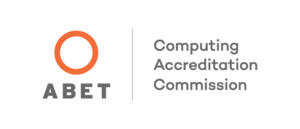Information Technology BS (Metro)

The Gildart Haase School of Computer Sciences and Engineering offers a Bachelor of Science (B.S.) in Information Technology (IT) program that provides students with the comprehensive knowledge, skills and training needed to pursue careers as IT professionals in one of the most dynamic areas of modern technology.
Program Claims
- Emphasizes the practical applications of information technology.
- The IT core courses emphasize user needs based system design, networking, and cybersecurity.
- The mathematics, science and programming courses provide students with a strong analytical and scientific foundation.
- Liberal arts courses prepare students to become global citizens.
- Oral and written communication skills are emphasized throughout the curriculum.
- Students can avail themselves of a cooperative education experience.
- Specialization in Web Development Technology and/or Network and System Administration and/or Security and Forensics is available.
- The BS in Information Technology degree program with a concentration in Security and Forensics fully meets the NSA and DHS CAE-CDE requirements.
Concentrations
The BS in Information Technology degree program allows students sufficient flexibility to concentrate in Web Development Technology and/or Network and System Administration and/or Security and Forensics or a second discipline of interest (a minor).
The National Security Agency (NSA) and the Department of Homeland Security (DHS) have designated Fairleigh Dickinson University as a National Center of Academic Excellence in Cyber Defense Education (CAE-CDE) through the academic year 2020. The B.S. in Information Technology degree program with a concentration in Security and Forensics fully meets the CAE-CDE requirements. Students completing this concentration will help the information technology majors learn the use of cyber-defense techniques and tools in the systems, networks, and database administration tasks. It has the further strength of learning computer forensics from courses offered by the School of Criminal Justice, Political Science, and International Studies.
Degree Plan
1st Semester (14 credits)
- CSCI1105 Survey of Computers & Computer Software
- WRIT1002 Composition I: Rhetoric & Inquiry
- INFO1101 Computer Concepts & Technology
- MATH1105 College Algebra
- UNIV1001 Transitioning to University Life
2nd Semester (14 credits)
- WRIT1003 Composition II: Research & Argument
- INFO1201 Information Technology
- MATH1107 Pre-calculus
- UNIV1002 Preparing for Professional Life
- CGD1177 Introduction to Digital Media
3rd Semester (16 credits)
- EGTG2210 Technical Communication
- INFO2101 Computer Programming for Information Technologies I
- INFO2105 Internet & Web Applications
- Laboratory Science Elective
- UNIV2001 Cross-cultural Perspectives
4th Semester (16 credits)
- ENGR2286 Digital Systems Design
- INFO2102 Computer Programming for Information Technologies II
- INFO2106 Web Site Design and Management
- Laboratory Science Elective
- CSCI 2235 Survey of Computing Security
5th Semester (15 credits)
- CSCI2234 Data Structures and Algorithms
- ENGR3000 Modern Tech: Principles Applications and Impact
- MATH2337 Applied Statistics I
- INFO3201 Human Computer Interface
- Minor or Concentration Course or IT elective (3 credits)
6th Semester (15 credits)
- CSCI3268 Database Systems
- INFO3205 Digital Media Publishing
- INFO4278 Operating systems or Minor or Concentration Course or IT elective
- CSCI3274 Linux Systems Administration
- UNIV2002 Global Issues
7th Semester (15 credits)
- EGTG4269 Management & Engineering Economics
- INFO4101 Data Communication & Computer Networks I
- MATH2255 Discrete Structures
- Minor or Concentration Course or IT elective OR INFO4844 Programming for the Internet (3 credits)
- Minor or concentration course or IT elective (3 credits)
8th Semester (15 credits)
- INFO4205 Capstone Project
- INFO4410 Foundations of Cybersecurity
- Minor or Concentration Course or IT elective
- Minor or Concentration Course or IT elective
- INFO4201 IT Needs, Assessment Mgmt
Information Technology Elective
Six credits must be selected from the Information Technology approved list of Technical Electives, which can be obtained from the School of Computer Sciences and Engineering. The courses must be approved by an academic advisor. Students can elect to participate in a cooperative educational experience and earn up to six credits.
Information Technology Concentrations
Students can select one of the two concentration areas—Web Development Technology or Network and System Administration. Web Development Technology requires students to take INFO4844: Programming for the Internet in their 7th semester and Network and System Administration requires students to enroll in INFO4278: Operating Systems in their 6th semester.
Minor or Concentration
Students must either concentrate in a particular area of information technology or undertake a minor other than information technology. Any concentration area or minor undertaken by the students must be approved first by an adviser. A minimum of 15 credits (from various department-approved lists of courses) is required for an area of concentration or a minor.
Science Electives
Students are required to complete one full-year laboratory science sequence totaling eight (8) credits from the following courses:
- PHYS2101, PHYS2102 General Physics I & II and PHYS2201, PHYS2202 Physics Laboratory I & II
- CHEM1201, CHEM1202 General Chemistry I & II and CHEM1203, CHEM1204 General Chemistry Laboratory I & II
- BIOL1221, BIOL1222 Biological Diversity Lecture & Lab and BIOL1233 & BIOL1234 Molecules, Cells, & Genes Lecture & Lab
Security and Forensics Concentration
Required Concentration Courses (15 credits)
- CRIM2218 Computer Technologies and Cyber Crime
- CRIM3327 File System Forensic Analysis and Investigation
- CRIM4010 Computer Forensic, Software, and Hardware Applications
- CSCI2235 Survey of Computing Security
- CSCI3783 Information Security
Web Development Technology Concentration
Required IT Elective Course (3 credits)
INFO4844 Programming for the Internet
Network and System Administration Concentration
Required IT Elective Course (3 credits)
INFO4278 Operating systems
Special Information
- The U.S. Bureau of Labor Statistics (BLS) projects an employment growth of higher than average 11 – 28 percent from 2016 to 2026.
- The Metropolitan Campus computer labs offer over 250 state-of- the art Internet-connected computing platforms with multiple operating systems (Windows, Linux, VMWare, etc.) for student use.
- Software packages for programming, multimedia applications, website design, database management, big data analytics, computer gaming, networking, and security are installed on the lab computers.
- Servers running Netlab+ allow students practice lab exercises virtually preparing for the CompTIA A+, Network+, Security+, Linux+ and other certifications.
- All requisite routers, switches, firewalls, servers, wireless access points, etc. and software pertaining to a CISCO Academy are available.
- Credit-card sized Beaglebone Black and Raspberry-PI computers are available for embedded systems programming and IoT development.
- Specialized workstations for digital forensics are available for forensic analysis.
- A Cybersecurity and Digital Forensics lab is under development.
- MSDN Academic Alliance program provides access to Microsoft software at no cost.
- Students pursuing the BSIT degree program with a Concentration in Security and Forensics are eligible to apply for the prestigious Department of Defense (DoD) Cyber Scholarship Program (CySP).
- The program is undergoing national accreditation by the Computing Accreditation Commission (CAC-ABET).
Professional Accreditation

The B.S. in Information Technology program is accredited by the Computing Accreditation Commission of ABET, www.abet.org. This accreditation applies only to the Bachelor of Science in Information Technology program offered by the Gildart Haase School of Computer Sciences and Engineering at the Metropolitan Campus, Teaneck, New Jersey.
Educational Objectives
The BS in Information Technology program will produce graduates who:
- Enter, advance, and lead in the profession of information technology, management information systems, business administration, or other related fields.
- Continue their education by obtaining professional certificates or advanced degrees in information technology, management information systems, business administration, or other related fields.
- Continue to conduct themselves as both responsible professionals and global citizens, who are aware of ethical issues and societal needs and problems.
Student Outcomes
The BS in Information Technology program has adopted the Student Outcomes of the Computing Accreditation Commission (CAC) of ABET as its own learning outcomes, which define the attributes, skills, and knowledge that the graduates are expected to possess upon or before graduation. Each Information Technology graduate will demonstrate the following attributes and achievements as required by the CAC of ABET by the time of graduation:
- Analyze a complex computing problem and to apply principles of computing and other relevant disciplines to identify solutions.
- Design, implement, and evaluate a computing-based solution to meet a given set of computing requirements in the context of the program’s discipline.
- Communicate effectively in a variety of professional contexts.
- Recognize professional responsibilities and make informed judgments in computing practice based on legal and ethical principles.
- Function effectively as a member or leader of a team engaged in activities appropriate to the program’s discipline.
-
Use established approaches to apply, integrate, and administer secure computing technologies to accomplish user goals.
Career Opportunities
Information technology is credited with being a major factor in increased productivity and the driving force behind the new global economy. The U.S. Bureau of Labor Statistics (BLS) reports that computer support specialists held 565,700 jobs in 2008; computer network, systems and database administrators, 961,200 jobs. BLS also projects an employment growth of 14 percent for the former job category and 30 percent for the latter one from 2008 to 2018.
The two growth rates are higher than the average rate for all occupations. Other IT and computer-related jobs are expected to grow at a faster rate as well. The great demand for IT professionals, not only in the New York and New Jersey areas but throughout the country and the world, ensures graduates of strong employment opportunities following completion of the program.
Program Enrollment and Degree Data
The official fall term enrollments of the B.S. in Information Technology program for the last five academic years and the number of degrees conferred during each of those years.
|
|
Academic Year |
Enrollment Year |
Total
|
Degrees Awarded |
|||||
|
1st |
2nd |
3rd |
4th |
|
|
||||
|
Current Year |
2025-2024 |
FT |
10 |
8 |
10 |
3 |
31 |
Not yet available |
|
|
PT |
1 |
1 |
2 |
1 |
5 |
||||
|
1
|
2024-2023 |
FT |
13 |
8 |
6 |
7 |
34 |
7 |
|
|
PT |
1 |
|
|
2 |
3 |
||||
|
2
|
2023-2022 |
FT |
8 |
4 |
11 |
6 |
29 |
6 |
|
|
PT |
|
|
1 |
4 |
5 |
||||
|
3
|
2022-2021 |
FT |
4 |
9 |
11 |
14 |
38 |
19 |
|
|
PT |
|
1 |
|
1 |
2 |
||||
|
4
|
2021-2020 |
FT |
9 |
10 |
13 |
7 |
39 |
5 |
|
|
PT |
|
1 |
|
3 |
4 |
||||
FT- full time, PT- part time